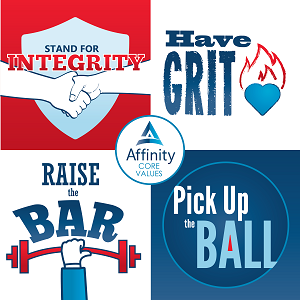Have you ever been at the office, and something sets you off? It might have been something someone said in a meeting. Maybe it was an email you received from a teammate. Your supervisor criticized your work product. Or you were on a call with a client and you couldn’t get them to understand where you were coming from. Of course, you have. We’ve all experienced moments when something didn’t go as we expected or wanted. We experience these types of interactions every day both in our personal and professional lives.
How you handle these situations, as well as your ability to see them coming and avoid them, is the very definition of your Emotional Intelligence (EQ), and some of us are better at it than others. EQ might be the single most defining factor in success. The author of Emotional Intelligence 2.0 and co-founder of TalentSmart asserts, “Of all the people we’ve studied at work, we’ve found that 90% of top performers are also high in emotional intelligence. On the flip side, just 20% of bottom performers are high in emotional intelligence. You can be a top performer without emotional intelligence, but the chances are slim. Naturally, people with a high degree of emotional intelligence make more money—an average of $29,000 more per year than people with a low degree of emotional intelligence. The link between emotional intelligence and earnings is so direct that every point increase in emotional intelligence adds $1,300 to an annual salary. These findings hold true for people in all industries, at all levels, in every region of the world. We haven’t yet been able to find a job in which performance and pay aren’t tied closely to emotional intelligence.” (TalentSmart, “About Emotional Intelligence” https://www.talentsmart.com/about/emotional-intelligence.php)
However, if you’re not great at reading other people’s emotions and/or your own, or if you aren’t great at anticipating/managing your own emotions or avoiding confrontation/managing relationships with others, the best news is that you can actually improve your EQ. You read that right… EQ is a skill, and you can get better at it!
At Affinity, we spend quite a bit of time and focus on improving communication and fostering better leaders - both internally and in our clients’ offices. Many of the methods we employ can also improve EQ.
It all starts with our Core Values – Stand for Integrity, Have Grit, Raise the Bar, Pick Up the Ball.
At its core foundation, “Stand for Integrity” is all about saying what you think while taking time to think about what you are saying. Listening to others with a goal of understanding what they are saying helps ensure that you are not pre-planning your reaction and your response, but rather really trying to understand others’ perspectives, which is the foundation of meaningful communication.
Emotionally intelligent people don’t focus their energy on things that are out of their control. The “Have Grit” theme pushes people to think outwardly by challenging them to enable and empower others while at the same time being resilient, and able to bounce back when success isn’t immediate.
Although the themes are very different, “Raise the Bar” and “Pick Up the Ball” force us to reflect on pushing ourselves to always be improving individually and as a team, while being engaged and supportive of our fellow teammates, and it is very difficult to effectively support others and “have each other’s back" if we don’t take the time to manage our relationships.
Being invested in raising the EQ of your teams, and your own EQ personally, will help your entire firm deal with both internal and external challenges more effectively.
Ready to raise the EQ of your team? Request a consultation now.
[* Published with permission from ALFN. Originally Published in ALFN WILLed April 2019 Vol. 4 Issue 2.*]









